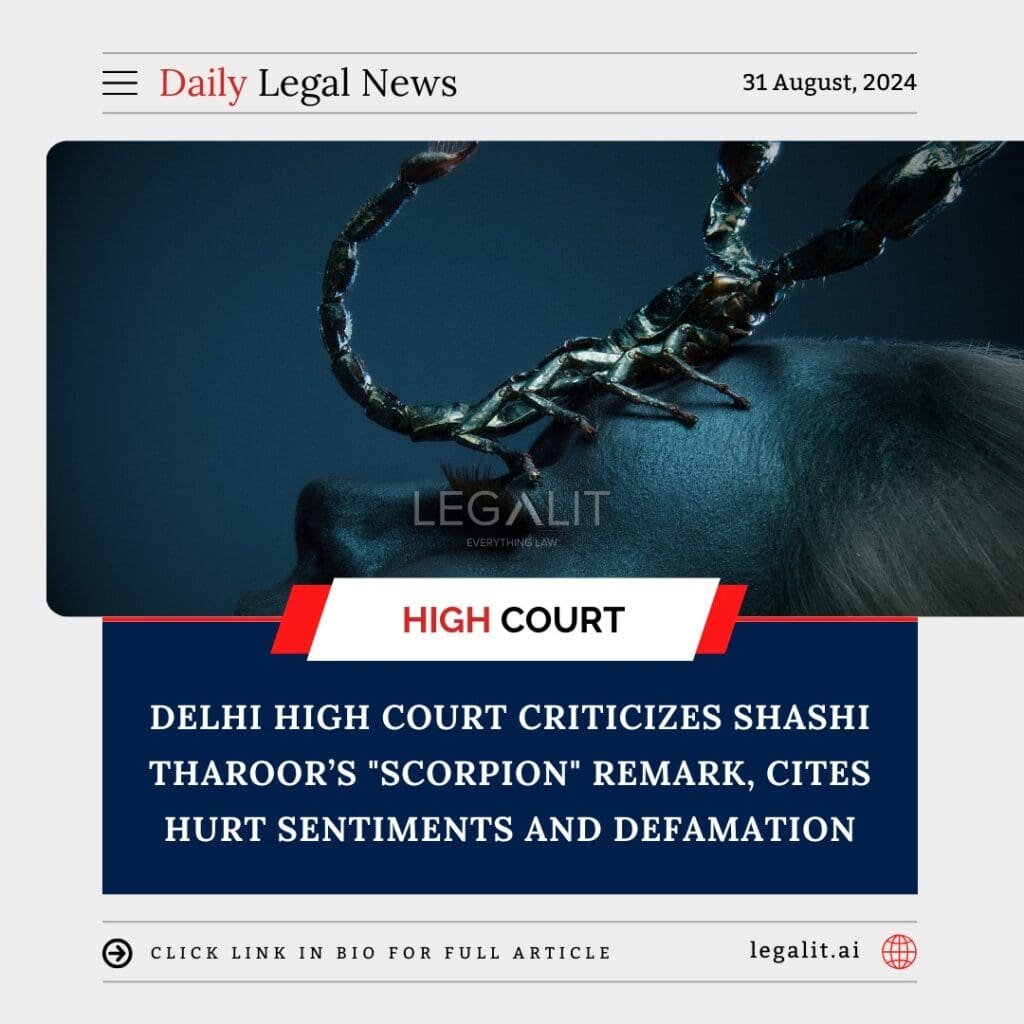
The Delhi High Court has taken a critical view of Congress leader Shashi Tharoor’s controversial “scorpion on a Shivling” remark about Prime Minister Narendra Modi, stating that it not only hurt the sentiments of Hindus but also defamed the Prime Minister and the Bharatiya Janata Party (BJP). The court’s observations come in response to a defamation suit filed against Tharoor, highlighting the sensitive nature of political discourse in the country.
During a recent hearing, the court remarked that Tharoor’s statement, made in 2018 at a literary event, had the potential to offend religious sentiments and tarnish the reputation of the sitting Prime Minister and his party. The “scorpion on a Shivling” metaphor, which Tharoor attributed to an unnamed Rashtriya Swayamsevak Sangh (RSS) source, likened Modi’s leadership style to the dilemma of a person faced with a scorpion sitting on a sacred Shiva Lingam—unable to remove it without causing harm, yet unwilling to leave it in place.
The court observed that while freedom of expression is a fundamental right, it does not extend to making statements that can be construed as disrespectful or defamatory, especially when they touch upon religious sensitivities and the dignity of individuals holding public office. The judge emphasized that political leaders have a responsibility to maintain decorum in public discourse, particularly in a diverse and pluralistic society like India, where such remarks can easily lead to communal discord or incite hatred.
The defamation case against Tharoor was filed by BJP leader Rajiv Babbar, who argued that Tharoor’s comments were not only derogatory but also intended to malign the image of Prime Minister Modi and the BJP among the general public. The court has now directed Tharoor to respond to the allegations and has set a date for the next hearing.
This development is significant as it underscores the judiciary’s role in moderating the boundaries of political speech in India. It also reflects the heightened scrutiny over statements made by public figures, especially those that can influence public opinion or stir communal sentiments.
Tharoor, known for his eloquent oratory and outspoken political views, has often been a vocal critic of the Modi government. However, his “scorpion” jibe has sparked widespread debate about the limits of political satire and criticism, raising questions about the fine line between freedom of speech and defamation.
The case is expected to bring further attention to the dynamics of political rhetoric in India, where the language used by leaders and public figures can have profound implications, not just legally, but also socially and politically. As the legal proceedings continue, all eyes will be on how the court balances the constitutional right to free speech with the need to protect the dignity of individuals and the sentiments of the public.